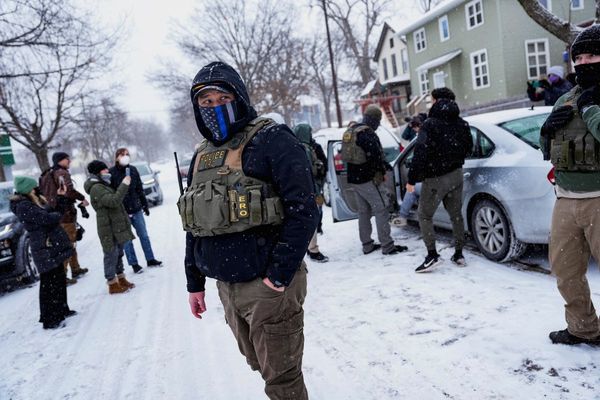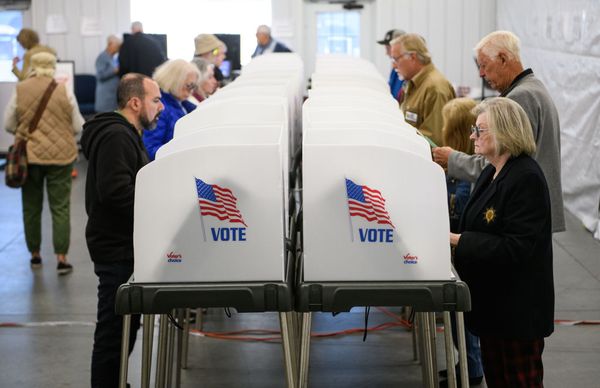
Qantas is relishing a financial sweet spot, with profits booming and its share price skyrocketing off the back of high prices, 15 years of under-investment in its fleet, engineering staff and facilities, plus screwing staff wages down and buying back shares.
At its annual results next month, Qantas is expected to deliver a profit of $2.425 billion-$2.475 billion according to May guidance.
But customers remain deeply unhappy. The airline cancels flights with monotonous regularity across its three main Australian arms — Qantas proper, Jetstar and Qantas Link, which services smaller regional airports. Its phone lines are permanently clogged, economy-class food is loaded with sugar, fat and/or is inedible, and its club and business lounges look like unkempt late-night dive bars — tatty, dirty and understaffed. Yet prices remain stubbornly high due to, according to the competition regulator says, a lack of competition.
Those expecting some relief from the Albanese government in the shape of more competition in the airline sector (that it claims it wants) and/or the delivery of proper customer guarantees and compensation that consumer groups are seeking (such as those long available in the EU and now on their way in the US thanks to a rare bipartisan bill passed by Congress last week) have been bitterly disappointed.
Instead, it appears to be doing its best to protect Qantas’ dominant market position, in thrall to their lobbying.
In a bewildering move, in the past week Canberra has rejected Qatar Airways’ bid to add an extra 21 flights into Australia, and a bid by well-regarded Turkish Airlines to begin its first flights to Australia is also under a cloud. Transport Minister Catherine King, who has all but ignored the sector since taking up the role after last year’s election, has struggled to explain the Qatar decision, claiming it was unrelated to a nasty incident that saw Australian women put through demeaning body checks in 2020.
Increasingly, observers are concerned that the airline is leveraging its ultimate lobbying ace in the pack — its exclusive Chairman’s Lounge of which almost every federal politician is a member. Members have access to a special phone line which, unlike regular Qantas call centre lines, gets answered in a thrice. They are offered free upgrades, access to frequent-flyer seats that even Qantas’ most loyal platinum and lifetime gold members cannot get, and are showered with five-star treatment in plush lounges that sit behind secret black doors at Australia’s major airports. It’s not just politicians; some senior regulators and judges who may adjudicate on the company are also members.
Qantas remains the senior player in an effective oligopoly with Virgin Airlines — together they control 95% of the domestic market, with Qantas taking 66% of the overall market. With partner Emirates in a cartel-like arrangement, Qantas also holds 53% of the Australia-Europe market, dominates regional holiday routes such as Bali and Phuket, and holds about 40%-50% of the lucrative Australia-US market.
Its domestic earnings before interest and taxes (EBIT), or profit margin, increased from 12% in 2016-17 to 18% for 2021-2022 — a 50% increase in six years. Typical profit margins for domestic aviation operators in Australia were between 8% and 10%.
And with the average Qantas fleet age now 15 years, its understaffed maintenance division is struggling, especially with the domestic workhorse 737s.
“Pretty much everything is a mess with the 737s,” one engineer told Crikey. Aircraft are carrying “massive hold items” components or systems that don’t work but the aircraft can continue to fly under the manufacturer’s guidance. The “cabins are in poor shape. I’d say the company wants to run these aircraft without big investments until the [new] A320s come in. There are just no parts or manpower.”
One pilot described this as “like flying wounded kangaroos, with some not even allowed to fly over water at times”.
Pilots who spoke to Crikey agreed. “It takes at least 15 minutes to even get someone to look at a last-minute fault — and they are pulled off another job. This is behind a lot of the delays. It never used to be like this,” one pilot with decades of experience said.
Meanwhile, at Qantas’ main engineering base in Australia, staff are working in what one engineer described as “Third World” conditions.
“We are still flat-out every day in Sydney and as you see in the media we still have plenty of delays,” another engineer said. “We are sending A380s to Singapore for maintenance now as the Qantas maintenance facility at Los Angeles is such a basket case they are unable to complete the maintenance they were set up to do.”
The Sydney base was treated with disdain, “Yet we are the facility where the most maintenance is achieved. Our facilities are still Third World and no money will be spent upgrading them until Qantas knows what Sydney Airport Corp wants to do with the terminals. We have been promised new hangars for 20 years yet no one wants to invest in world-class infrastructure.”
It is also still many years until its fleet renewal will get into full swing, with dozens of aircraft — including replacements for its A330s — in a global environment where waitlists on Boeing and Airbus planes are only getting longer. Crikey has learnt that outgoing CEO Alan Joyce will belatedly announce the purchase of 12 787s and 12 350s — both long-range twin-aisle aircraft — at the results briefing next month. When they will be delivered is another matter.
As part of its aggressive lobbying efforts, Qantas bleats about saving Australian jobs yet does its best to send jobs to foreign workers offshore. It has a “wet lease” deal with Finnair which provides crew on leased planes, its Emirates alliance, crews based in Singapore, the UK, Thailand — known in the region as one of the industry’s worst paid — and New Zealand. It has call centres in South Africa, Ireland and the Philippines and is lobbying for 300 overseas residents to be able to pilot its planes for the first time. It is already recruiting in South Africa, sources said.
Australian pilots, especially those newly certified, are heading offshore where wages are substantially higher. While top Qantas pilots can earn as much as $400,000, US freight carriers are offering up to US$700,000. Saudi Arabia’s nascent Riyadh Air, announced only in March with plans of becoming the Middle East’s largest airline, is offering US$500,000 tax-free, pilots familiar with global pay rates said.
As with an increasing number of issues, the Albanese government, which promised so much in its election campaign, is looking all too much like its predecessor in its reluctance to make improvements in the airline sector.
God forbid that Qantas was forced to cut its Chairman’s Lounges in the face of sturdy competition and our politicians — looking at you too, teals — and senior public servants were forced to mix with the hoi polloi, take their turn in the queue and perhaps hear why Australians are angry.
Have you flown Qantas lately? How did you find the service? Let us know by writing to letters@crikey.com.au. Please include your full name to be considered for publication. We reserve the right to edit for length and clarity.







